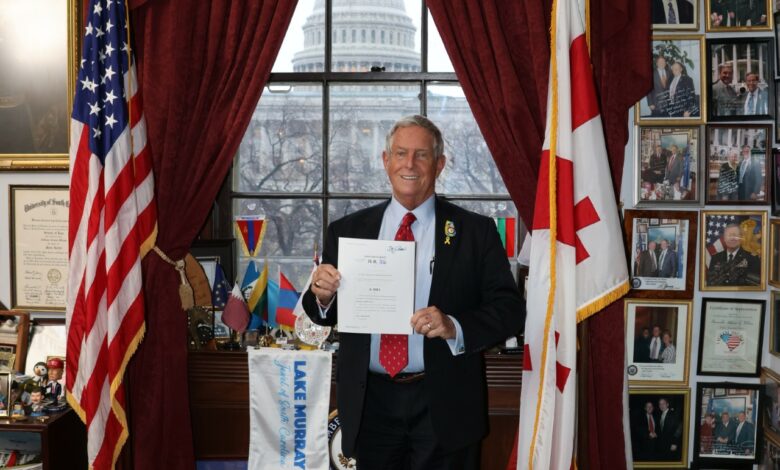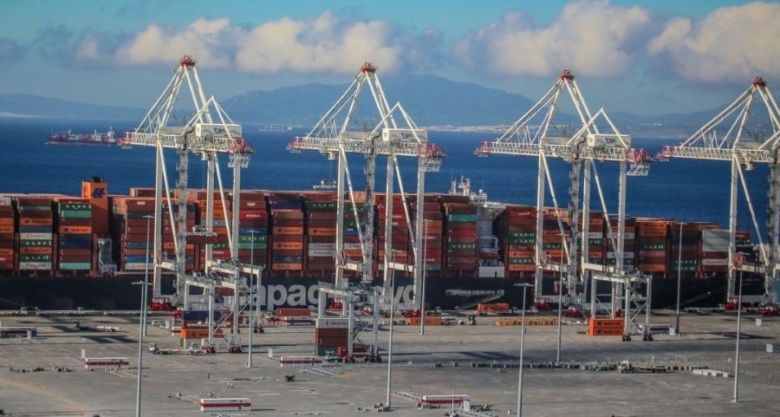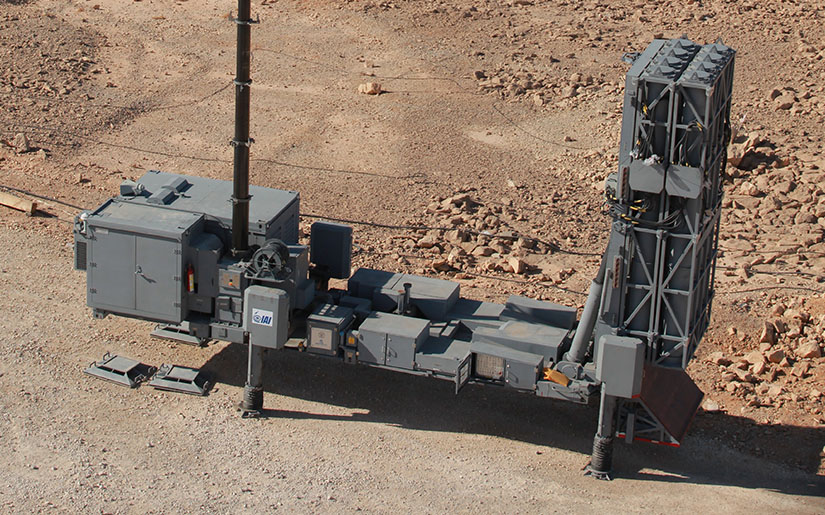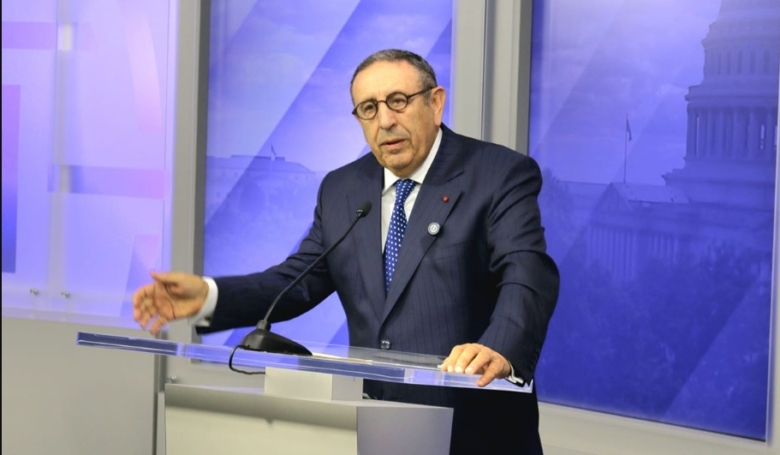Republican U.S. Representative Joe Wilson announced on Thursday that he has officially submitted, alongside Democratic Congressman Jimmy Panetta, a draft bill to the U.S. House of Representatives aimed at designating the Polisario Front as a foreign terrorist organization. The move follows months of intensive preparation by Wilson in recent months.
The announcement came in a post on the congressman’s official account on the X platform, where he stated that the Polisario is a “Marxist militia backed by Iran, Hezbollah, and Russia,” providing “a strategic outpost for Tehran in Africa and destabilizing the Kingdom of Morocco, a U.S. ally for 248 years.”
Wilson added, “I am proud to introduce bipartisan legislation with Democratic Congressman Jimmy Panetta to designate the Polisario as a foreign terrorist organization!”—a sign of a rare cross-party consensus in the U.S. Congress targeting a group seen as opposed to American interests.
Wilson based his proposal on a wide array of documents and reports alleging the Polisario’s involvement in terrorist activities and alliances with U.S. adversaries such as Iran. Among these are images of Polisario militants holding up a portrait of Ayatollah Khomeini in 1980, which the proposal claims aimed to gain Iranian support for the separatist movement.
Included in Wilson’s submission, as reviewed by Assahifa, is a report citing three Hezbollah officers who conducted military training in Tindouf for Polisario fighters, according to Jeune Afrique. One of the officers, later killed in an Israeli airstrike in Syria in 2023, had previously been sanctioned by the U.S. for his role in a 2007 attack in Karbala, Iraq, that killed five American soldiers.
Wilson’s case also references a 2022 public statement by the Polisario’s so-called "Interior Minister," admitting that fighters were being trained to operate armed drones. Months later, Polisario channels posted images of Iranian drones, further fueling accusations of direct military support from Tehran.
The Republican lawmaker also cited an April 2025 Washington Post report stating that Iran trained and supplied the Polisario with drones, raising alarms about the group’s growing capabilities and threat potential.
In addition, Wilson's bill refers to evidence of the Polisario’s links to other terrorist groups, such as the PKK’s Syrian branch, whose representatives attended a Polisario-hosted event in Tindouf called the “Sahrawi Solidarity Summit.” The PKK is designated a terrorist group by the U.S. government.
The proposal includes several other documents and intelligence reports tying the Polisario to terrorist activity and collaboration with U.S. adversaries, and will be reviewed for a decision within 90 days of submission.
This development represents the culmination of a months-long campaign by Wilson, who first revealed plans for this bill on May 22, stating that former President Donald Trump "will take care of it", suggesting the Polisario constitutes a serious regional threat supported by America’s global rivals.
On April 11, 2025, Wilson posted on X: “I agree with Secretary Marco Rubio that genuine autonomy under Moroccan sovereignty is the only realistic solution to the Sahara issue. I will introduce a bill to designate the Polisario as a terrorist organization. Iran and Putin are seeking to expand their influence in Africa through the Polisario.”
In another post on May 9, Wilson announced a meeting with Moroccan Foreign Minister Nasser Bourita, writing, “Grateful to meet with FM Nasser Bourita to discuss our long-standing partnership and our commitment to peace in the region, including the stability of Western Sahara from Polisario terrorists. The U.S. stands with Morocco for peace.”
Wilson had also previously highlighted a report by Robert Greenway, Director of the Allison Center for National Security at the Heritage Foundation, titled “Why the U.S. Must Confront the Polisario: A Terror Proxy.” The report urged Washington to end its “unjustified silence” about the growing threat posed by the group.
The report stated that Polisario fighters use Iranian drones, share desert smuggling routes with Russian agents, and help fund jihadist groups in the Sahel, all “within missile range of the strategic Strait of Gibraltar.”
It referenced a 1988 incident when Polisario missiles downed two USAID aircraft, killing five Americans, with no subsequent U.S. sanctions, arguing that this legislation represents a critical test of America's willingness to confront entrenched terror proxies on NATO’s southern flank.
It also cited the Polisario’s 2020 declaration of war, resumption of attacks on Morocco’s security wall, and threats targeting foreign consulates, airlines, and investments—actions portrayed as a return to unregulated armed insurgency, enabled by Algerian support.
The Heritage report describes the group’s operational model as a three-pronged network: Iranian military support, an expanding Russian influence, and a trans-Saharan illicit economy that fuels terrorism. It adds that Algeria offers a secure sanctuary from which the Polisario operates with impunity and stores arms and recruits.
According to the report, Iran’s backing began in the 1980s, with training later offered by Hezbollah in Tindouf, and the appearance of Iranian equipment—including drones—within the Polisario’s arsenal proves the collaboration is real and growing.
The bill aims, as Wilson and co-sponsors stated, to freeze the Polisario’s assets in the U.S., ban its promotion or funding on American soil, and hold its supporters—including Algeria—accountable, as the latter is accused of funding and sheltering the group while fueling a conflict that enables terrorism in the Sahel.
The legislation is expected to be referred to the House Foreign Affairs Committee, before being voted on by the full House. If passed, it would mark a historic shift in the U.S. legislative stance on the Western Sahara dispute and bolster Morocco’s position on the international stage against foreign-backed separatist agendas.






